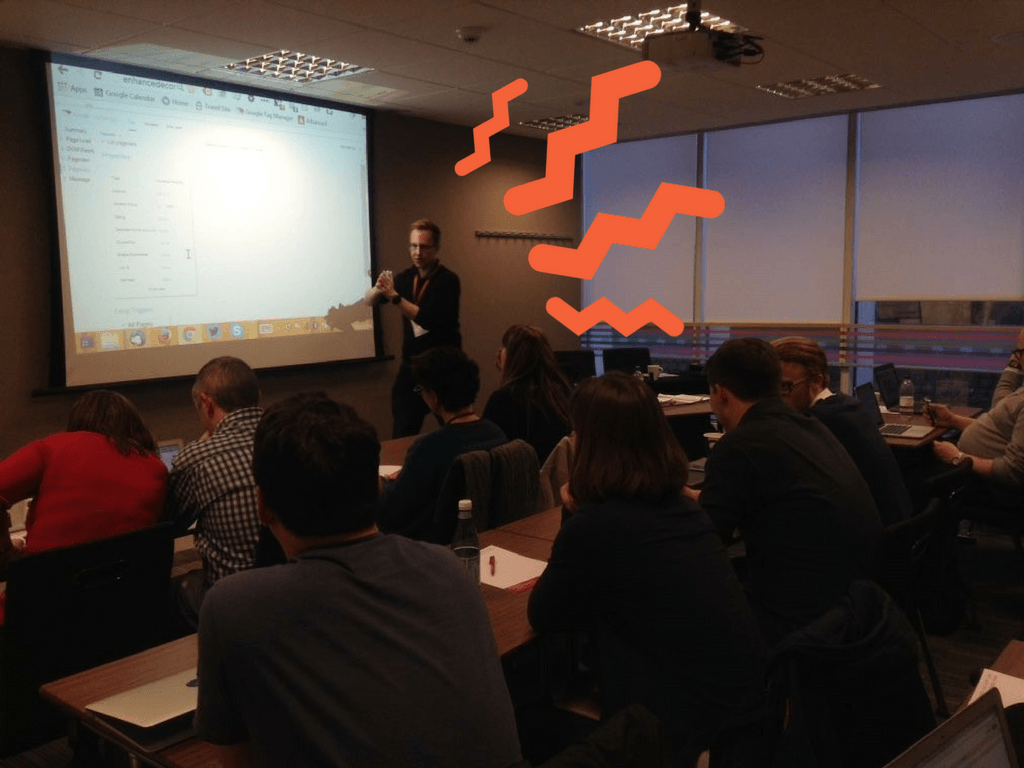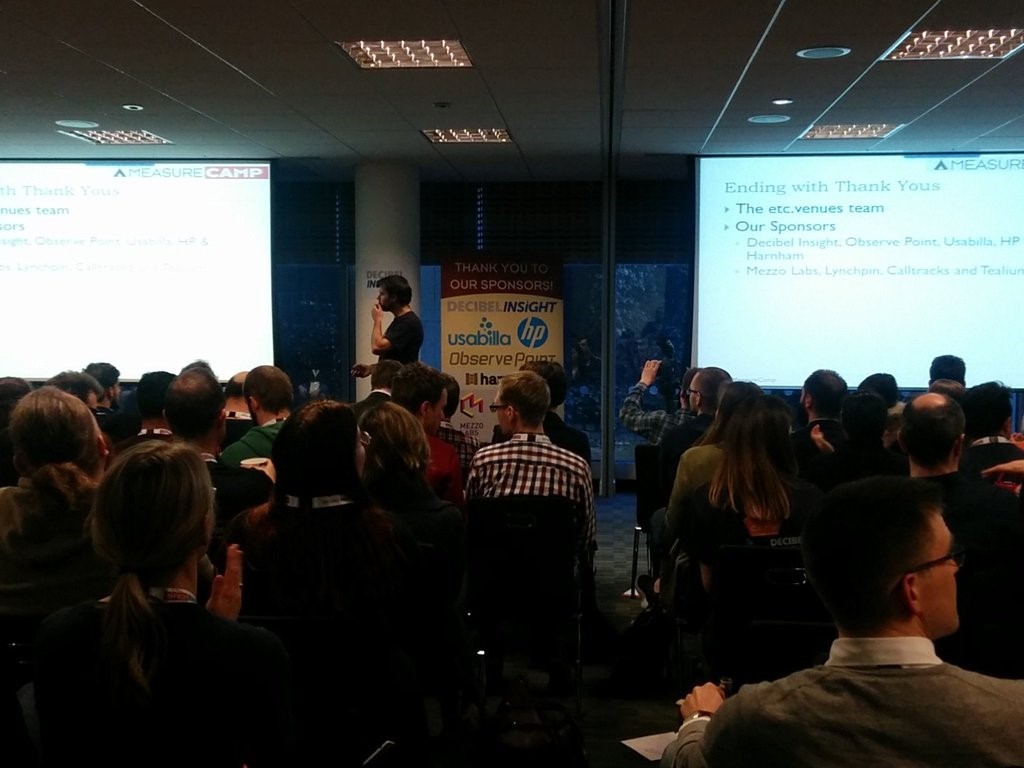
MeasureCamp #8 – The (un)Conference Review
What better way is there to spend a Saturday than attend an Analytics (un)conference?
I am sure there are quite a few but I personally rather enjoyed MeasureCamp 8 which took place last Saturday.
The format is quite unconventional in that there isn’t a set schedule, anyone who wanted to hold a presentation, workshop or discussion session, placed a card on a board to book the slot; anyone who is then interested attends the session and that’s how you get an un-conference going!
As this was the eighth time MeasureCamp was held the format has been refined a great deal and the network of attendees has grown substantially, meaning acquiring a ticket is almost as competitive as BrightonSEO! There are sessions going on at any level and subject, so I would definitely recommend to anyone looking to broaden their knowledge of web analytics.
Here are some highlights from the sessions I attended:
Custom Content Recommendation Engine
Mark Edmondson presented a demo which well represents the infinite possibilities offered to us through open technologies.
Using GA data he devised a clickstream Markov chain model using R (in non-geek speak: a script that guesses where users might go next based on other site user journeys) which can be run in the cloud, using OpenCPU in this case and communicate with users on the site through a REST API.
If you are savvy enough with GA, GTM, R and web APIs to hack this together in one simple application as demonstrated to send the history of someone’s pageviews to the OpenCPU, which can then calculate what the next action is likely to be based on the trained model, therefore enabling real-time personalised content recommendations!
Other possible applications could be dynamically assigning users to marketing segments, offering custom discounts based on users’ actions, or anything you can come up with!
Here’s Mark’s Proof-of-Concept repository if you want to have a go at setting something similar up:
https://github.com/MarkEdmondson1234/predictClickOpenCPU
DataLayer & SEO Schema
Phil Pearce did a short SEO/Analytics hybrid session that ties together GTM and the Googlebot which is a great addition to any SEO’s toolset. I voted for this as my favourite session of the day which definitely had nothing to do with Phil giving me a mini flying drone for asking a (very insightful) question!
Even though Google’s crawling bot is notoriously suspect at handling Javascript on pages it’s a bit of an industry myth that all JS is invisible to Google. In fact, Google supports a method of adding Schema information on your site in JSON format which can then be used by their Knowledge Graph. And this bit of JS can be put on through GTM, without having to mess about with the CMS or briefing web developers!
In short this allows you to put add-ons on your search results, much like PPC extensions. Examples include reviews, sitelinks, click-to-play actions, listing for events and various rich information snippets.
The implementation is rather straightforward, you just need to put the information in the required format on your site, test to check that Google can see and understand and just wait for the Googlebot to index your pages.
Phil’s presentation is here, past the Terminator metaphors (I didn’t totally get it either but it was fun!):
http://www.slideshare.net/phildpearce/seo-datalayer-2-your-structured-sites-judgement-day
Open Tag Management System: 7Tag
The last one is a bit of a funny one given the expanded popularity GTM and other TMS’s enjoy today, but as the case is always with software there are more than a couple of options. Google’s free Tag Manager has evolved to the point that it is not necessary for marketers to pay for a commercial solution while those enterprise platforms have moved on to more advanced applications of their technology such as data warehousing, personalisation and attribution.
But if you are someone like a start-up that handles sensitive user information and as data ownership is becoming ever so important you might require something in-between, a secure platform that is flexible and fully featured without the extravagant extras.
7tag can be just that as it can be fully hosted on company servers and does not have any dependencies on third parties. It has almost all of the capabilities GTM has brought us to expect including a couple of extra ones such as user tracking opt-out management. And to top it off it’s open-source so you could customise it and plug it into existing architecture without reliance on a vendor.
I was aware of 7tag previously when it had launched into Beta but did not have the chance to test it out. Seeing the live demo this week I was quite impressed to see it could be a viable alternative to leaders in the space such as GTM, DTM and TagMan and I definitely recommend keeping an eye on this one in the future.
Overall, the themes of openness, connectivity and continuous evolution that have dominated the web analytics sector are still growing stronger and will play a significant role in defining how digital marketing is executed in the near future. Be it automation, script logic, machine learning or real-time marketing there are ample applications of technology to the marketing messages companies want to get out to customers and it will be fascinating to see what possibilities will become realities.

